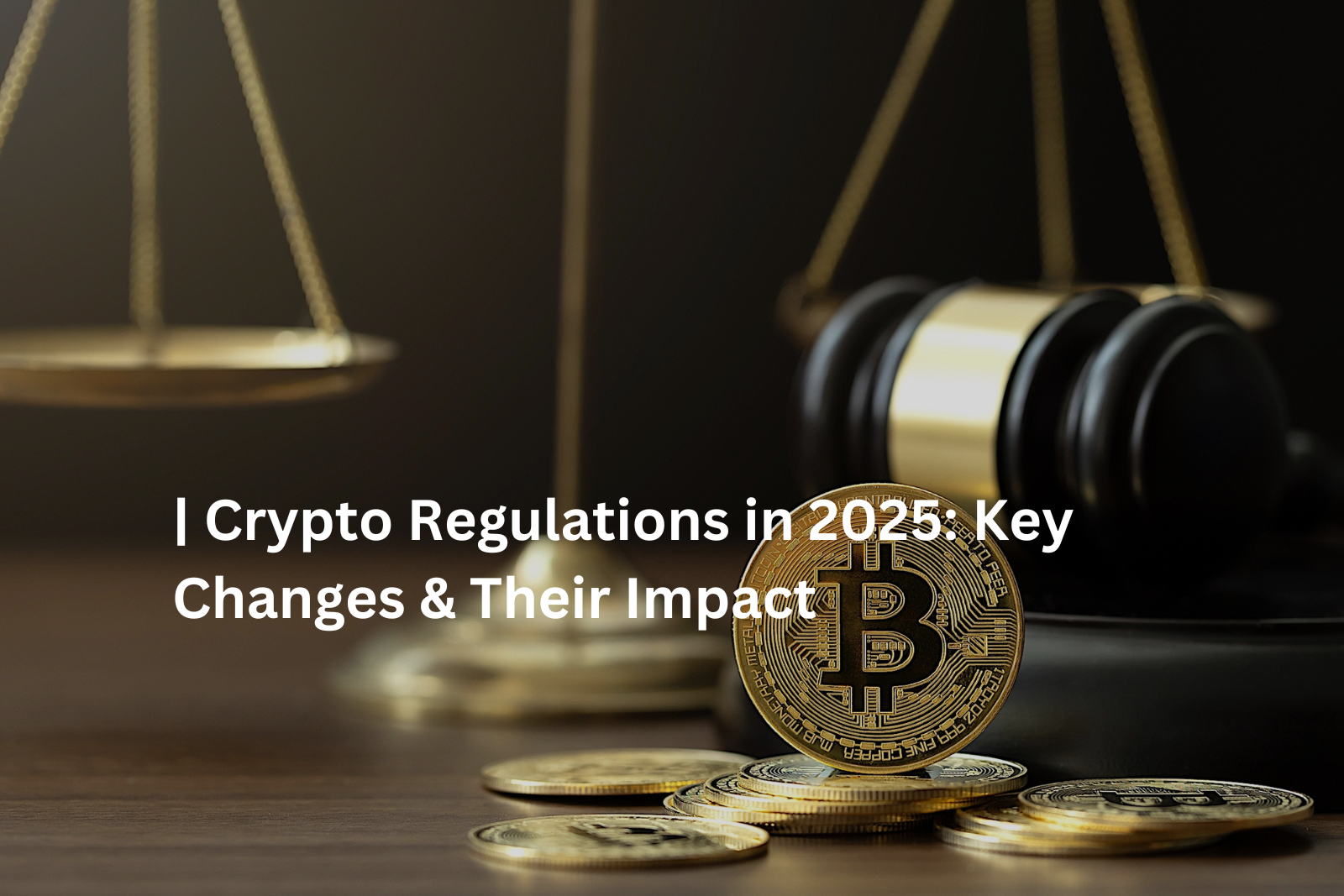As the cryptocurrency landscape continues to evolve, crypto regulations are becoming a focal point for governments and financial institutions worldwide. In 2025, new regulations are expected to shape the way digital assets are traded, taxed, and integrated into the broader financial system.
These changes are poised to impact everything from cryptocurrency exchanges to blockchain technology, creating both challenges and opportunities for investors, businesses, and regulators alike.
This article explores the key changes in crypto regulations set for 2025 and examines how they will impact the global cryptocurrency market, investors, and financial institutions.
What’s Changing in Crypto Regulations in 2025?
Stricter AML and KYC Requirements
Governments are tightening AML and KYC standards for crypto exchanges and wallet providers. By 2025, platforms will implement more rigorous user verification to reduce fraud, money laundering, and terrorism financing risks.
Taxation of Digital Assets
In 2025, crypto asset taxation will become stricter, with clear guidelines on reporting capital gains and income. Investors may face taxes on crypto-to-crypto exchanges, increasing compliance costs for both businesses and individuals.
Global Standardization of Regulations
Countries like the U.S., EU, and China are working toward unified global crypto regulations. This will streamline cross-border operations, boost market security, and enhance investor confidence.
Regulation of Stablecoins and CBDCs
In 2025, stablecoins and central bank digital currencies (CBDCs) will face increased regulatory oversight to ensure sufficient reserves and compliance with monetary policies, shaping the future of digital payments.
Regulating ICOs and STOs
Governments will impose clearer rules on ICOs and STOs by 2025 to protect investors and improve transparency, enhancing legal protections and market integrity, and allowing legitimate projects to thrive.
How These Changes Will Impact the Crypto Market
- Increased Trust and Adoption
As crypto regulations become more robust, institutional investors and traditional financial institutions will gain more confidence in the market. This will likely lead to greater adoption of cryptocurrencies and blockchain technology. Investors will feel more secure, knowing that there are regulatory frameworks in place to protect them from fraud and illegal activities. - Enhanced Market Liquidity
With global regulatory standardization, crypto exchanges will be able to operate across borders more easily, improving market liquidity. As regulations provide more clarity, the market will attract more institutional investors, leading to increased trading volumes and deeper liquidity pools, benefiting both individual and professional investors. - Innovation and Regulatory Compliance
While some may view regulations as a hindrance, they also create opportunities for innovation. Businesses will need to find creative ways to comply with new rules while still delivering efficient and effective solutions. Innovations in crypto compliance technology, such as AI-powered KYC and AML solutions, will emerge to help businesses adhere to regulations without sacrificing performance. - Cost of Compliance
On the flip side, the increasing complexity of compliance requirements will raise costs for businesses. Smaller crypto startups and exchanges may struggle to meet new regulatory standards, leading to consolidation within the industry. Larger players who can afford the compliance costs will dominate, potentially stifling competition and innovation. - Tax Reporting Challenges
Investors will need to adapt to more stringent tax reporting requirements, which could lead to higher administrative costs. Platforms will likely integrate automated tax tools to simplify the process of reporting crypto transactions, but the shift may still pose challenges for those who have not kept up with record-keeping.
The Future of Crypto Regulation
As the global regulatory environment for cryptocurrencies continues to evolve, investors and businesses must stay informed about these changes.
The regulatory landscape of 2025 promises to bring both challenges and opportunities, as tighter regulations aim to protect investors and integrate digital currencies into the global financial system.
As regulatory clarity increases, the cryptocurrency industry is expected to mature, leading to a more secure, transparent, and inclusive financial ecosystem.
Final insights on Crypto regulations
Crypto regulations in 2025 will significantly impact the way digital assets are traded, taxed, and regulated. Stricter AML, KYC, and taxation policies will improve security and investor protection, while the move toward global regulatory standards will streamline cross-border operations.
As the crypto market matures, these regulations will drive greater adoption, but will also present challenges related to compliance costs and tax reporting. Staying ahead of these changes will be key for investors and businesses looking to navigate the future of the crypto market.
